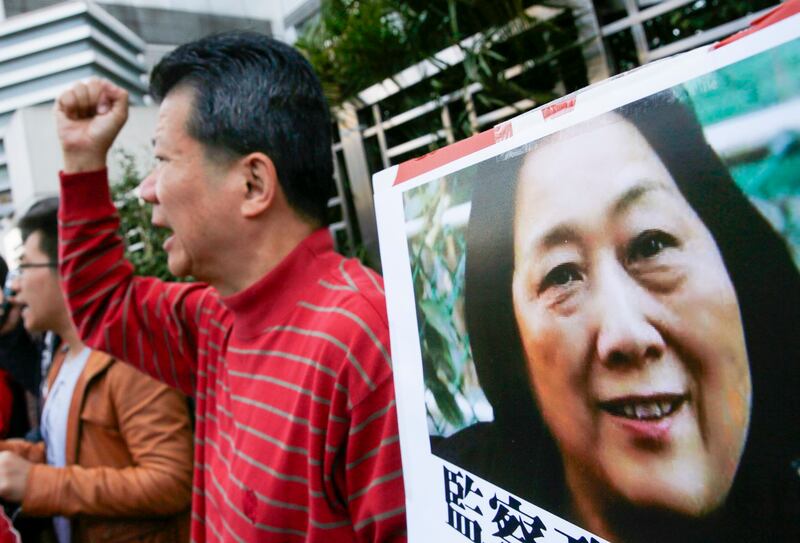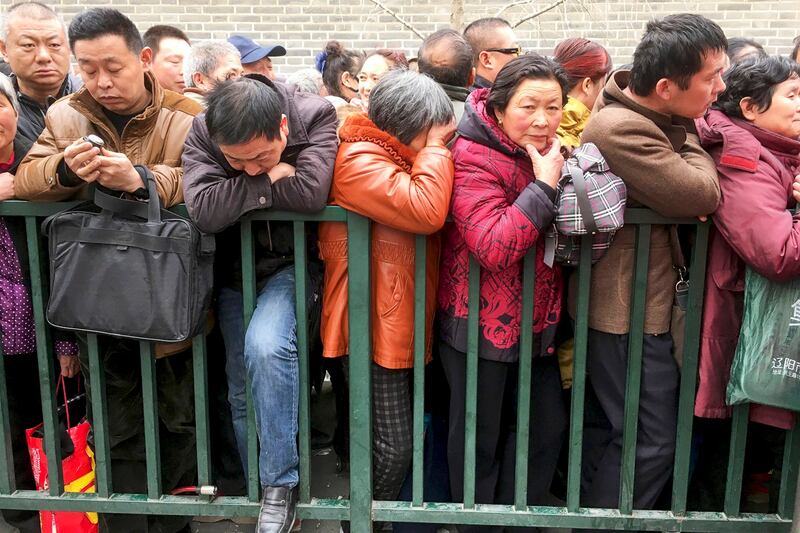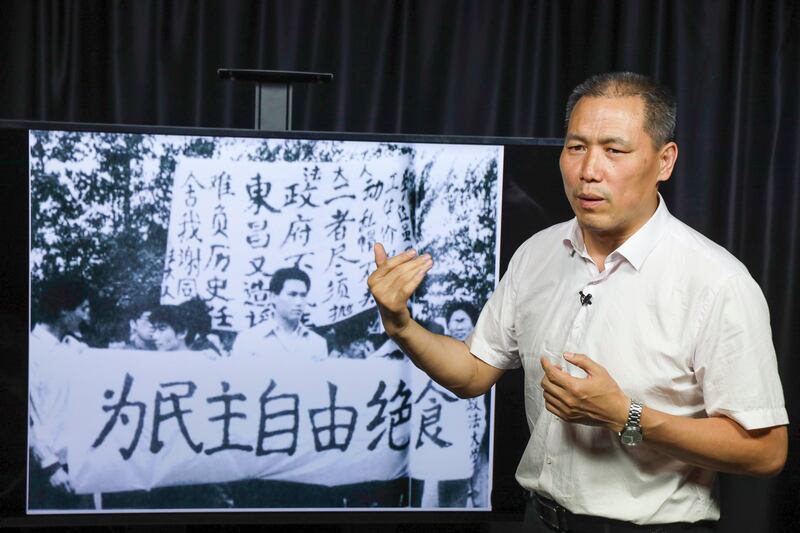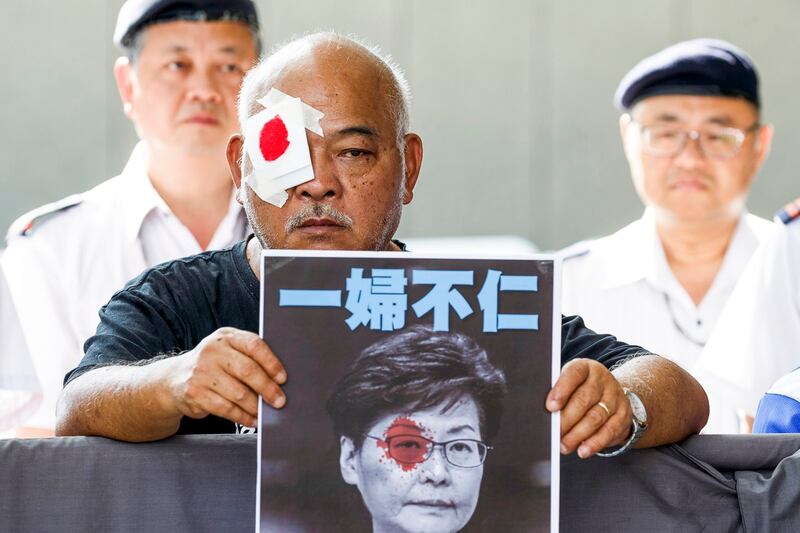Authorities across China are targeting dissidents and petitioners ahead of next week’s key meeting of the ruling Communist Party, placing them under house arrest or escorting them out of town on enforced "vacations," Radio Free Asia has learned.
Several high-profile activists including political journalist Gao Yu, rights lawyer Pu Zhiqiang and political commentator Zha Jianguo have been targeted for security measures ahead of the third plenary session of the party's Central Committee, a person in Beijing familiar with the situation who asked not to be named for fear of reprisals said.
The meeting is scheduled to start Monday at the Jingxi Hotel in Beijing in a bid to boost the struggling economy.
"I can name several people in Beijing who have been notified by state security police of house arrest or [enforced] travel, including Gao Yu, Zha Jianguo ... Pu Zhiqiang and many other rights activists," the person said. "Some have already left Beijing."

The operation is part of China's "stability maintenance" system, which kicks into high gear targeting those the authorities see as potential troublemakers ahead of top-level meetings and politically sensitive dates in the calendar.
Activists in Wuhan reported similar arrangements, with one participant in last year's " silver protests" among those targeted.
"Tong Menglan has been taken to Kunming by state security police for a few days," a Wuhan-based activist who gave only the surname Liu for fear of reprisals told RFA Mandarin on Tuesday.
"Several dissidents have been getting calls from police nearly every day, telling them to stay home and to share their cell phone locations with police, so they can be sure they've stayed home," he said.
Keeping them quiet
The "stability maintenance" system typically targets independent journalists, rights activists and lawyers, anyone with a grievance against the government, people who complain about or petition the authorities, and anyone with a track record of posting online content that the government doesn't like.
Meanwhile, an army of internet censors, many of whom work for private service providers, keeps a list of metaphors, code words, homophones and other workarounds to help them block and delete unwanted content.

Fellow Wuhan-based rights activist who gave only the surname Sun for fear of reprisals said he is currently under house arrest. "One reason is the July 1 Communist Party anniversary, and another is the upcoming third plenum of the Central Committee,” he said.
"Anyone who tries to go to Beijing will be put under house arrest," he said. "Even if you just say you are going to Beijing in a group chat, they will target you. They get paid to maintain stability.”
Government-backed censors are also blocking any groups on WeChat that typically discuss politics and current affairs, according to a Hunan-based dissident who gave only the surname Tian for fear of reprisals.
"Two of the groups I'm in for politically sensitive dissidents or political prisoners have been shut down two or three days ahead of [the plenum]," Tian said.
Unusually strict
Several dissidents told RFA Mandarin that controls are unusually strict this year.
"Firstly, this year's third plenum was delayed for so long, and secondly, two defense ministers have been arrested just beforehand," Tian said.

"They're under a lot of pressure due to the situation at home and internationally, and due to the economy," he said. "They're a little nervous."
Tian said he hasn't been put under house arrest -- yet.
A leaked directive from a county-level Stability Maintenance and Security Command Center in the southwestern province of Sichuan that was circulating on social media on Tuesday ordered staff to target any petitioners from the county who are still in Beijing, and bring them back home under escort by July 12.
China's army of petitioners, who flood the Communist Party's official complaints departments daily, frequently report being held in unofficial detention centers known as "black jails," beaten, or otherwise harassed if they persist in a complaint beyond its initial rejection at the local level, even if they follow legal channels.
They are often escorted home forcibly by "interceptors" sent by their local governments to prevent negative reports from reaching the ears of higher authorities. They face surveillance, violent treatment and possible detention on criminal charges, particularly during major political events or on dates linked to the pro-democracy movement.

A petitioner who gave only the surname Li for fear of reprisals told RFA Mandarin that she had just been brought back to Sichuan's provincial capital Chengdu by interceptors.
"Third plenums of the Central Committee are closely bound up with petitioners," Li said, adding that some people she knows are already under house arrest.
But she said it was "normal" for petitioners to go to Beijing to complain about problems.
"They shouldn't restrict and suppress petitioners just because there's a meeting on, when the government itself hasn't done anything to resolve these issues," she said.
Translated by Luisetta Mudie. Edited by Malcolm Foster.
